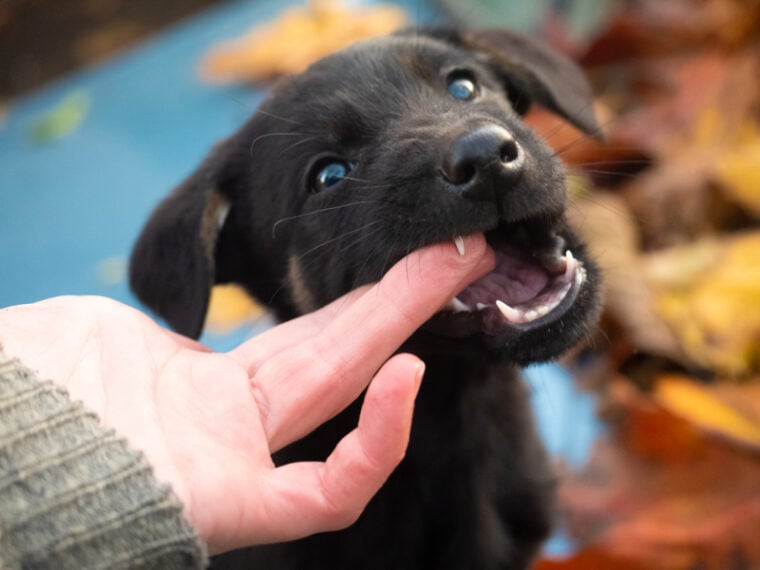
If you’ve ever been nipped by an overexcited puppy, you know just how sharp their little teeth can be. It can feel like you’ve been chomped on by a shark rather than an adorable ball of fur! But why are they so sharp?
In this article, we’ll discuss the three main reasons that a puppy’s teeth are so sharp. We will also discuss what you can expect from your puppy while teething and how to prevent nipping.
The 3 Reasons Why Puppy Teeth Are So Sharp
1. Puppies Have Weak Jaws
One of the primary reasons your puppy has such sharp teeth is to compensate for their weak jaws. While many adult dogs have powerful jaws, the same cannot be said for puppies, who are still growing and gaining strength.
Their sharp teeth are useful for breaking down food into smaller, more manageable pieces until their jaws grow stronger and pick up the slack. Without these sharp teeth, your puppy would have a much harder time eating their meals.
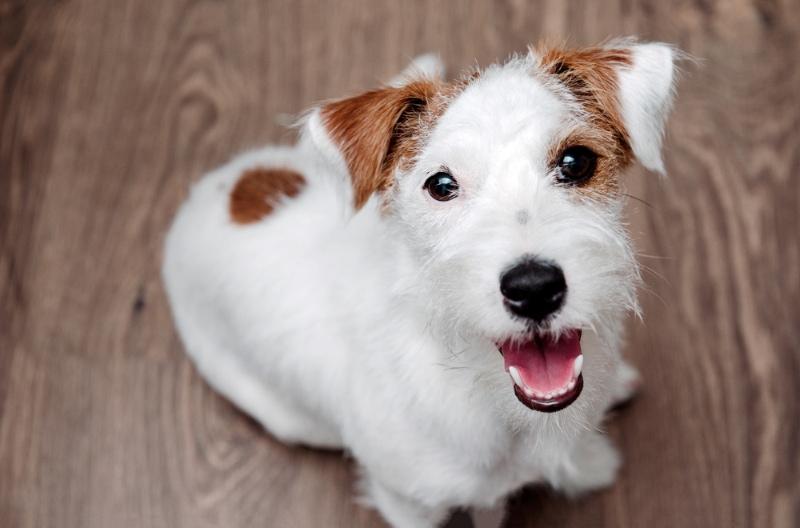
2. Their Sharp Teeth Weans Them Off of Their Mother’s Milk
When puppies are young, they nurse on their mother’s milk. It is easy enough for the mother, as her puppies don’t have teeth around this time. However, once they begin to develop their sharp teeth, nursing is more uncomfortable.
The sharp teeth can cause pain, so she will push them away when they try to nurse. This is an important event in a puppy’s development, as it ends the nursing phase and encourages them to seek nutrients elsewhere.
3. It Helps to Socialize Them
Puppies are curious creatures and often like to chew on whatever they can get their mouths on. Sometimes, this includes people or other pets–especially during playtime. If your puppy nips at someone while playing, they will likely stop playing with them.
The more this cause and effect is repeated, the sooner your dog will learn that nipping is not an appropriate method of play and they will learn how to control their bite strength so as not to cause pain.
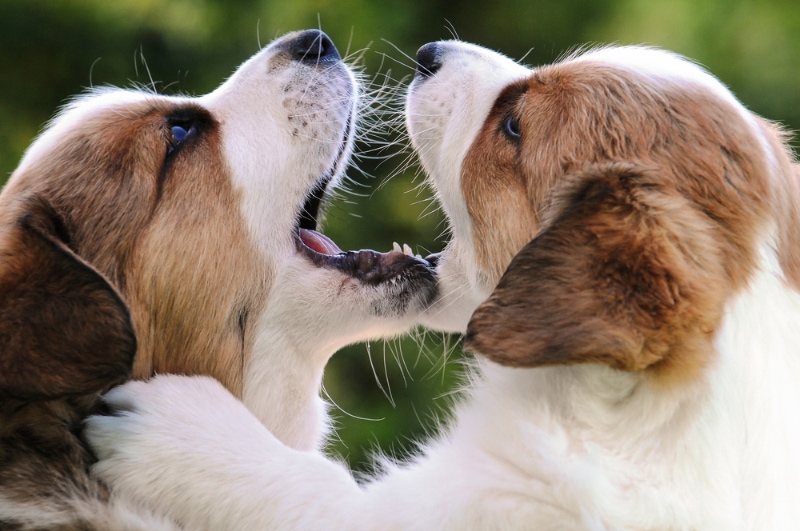
Understanding the Puppy Teething Process
Your puppy’s teeth will change a lot in the first 6 months of life. They are born without teeth, but once they hit around 3 weeks old, their baby teeth (deciduous teeth) begin to erupt. At around 6 to 8 weeks of age, your puppy’s baby teeth will have fully grown in.
During weeks 12–16, the teething process will begin all over again. Once your puppy is around 6 months old, all their adult teeth should be in place. Naturally, the teething process can be distressing and painful for puppies. The more you understand the process, the better equipped you will be to support your puppy through it.
Signs of Teething
Puppies will often chew on things to try and relieve the pressure in their gums. You may notice they look for firm objects to gnaw on, such as wooden furniture or plastic toys.
Other signs that you can watch out for are drooling and small spots of blood on their toys.
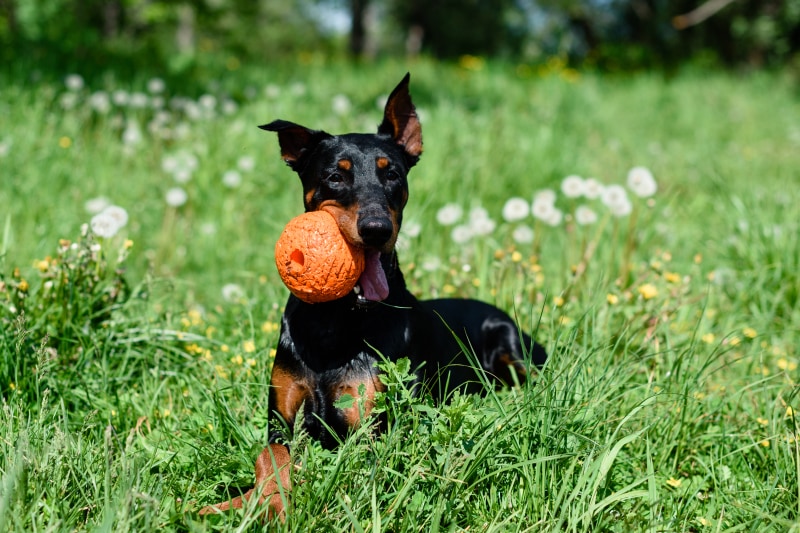
What Are Common Dental Issues to Be Aware of During This Time?
Dental problems are not a huge concern when your dog still has deciduous teeth. However, sometimes, your puppy will develop an issue severe enough to require veterinary intervention.
For example, certain breeds (particularly brachycephalic breeds) may retain their baby teeth, causing the adult teeth to grow in beside them when they should have replaced them. This can cause misalignment and crowding of teeth which can also increase your puppy’s risk of subsequent dental issues.
How to Take Care of a Teething Puppy
One of the best ways to care for your teething puppy is to provide them with plenty of safe toys to chew on. Rubber toys and chilled ones are great options. However, ensure the material is not too hard or too soft. Speak to your vet about what makes a proper and safe chew toy for your particular dog.
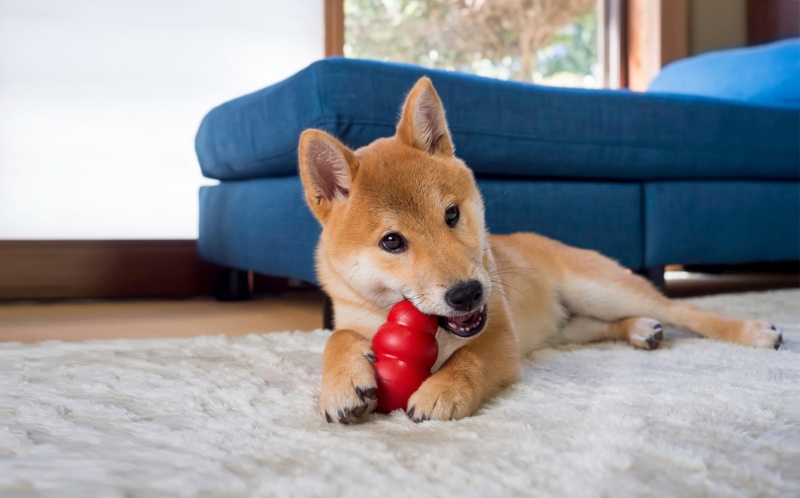
How to Stop Nipping
Nipping is a common behavior in puppies, as they are exploring the world and teething at the same time. You must discourage this behavior from the beginning since trying to train an adult dog not to nip or bite is challenging.
If your puppy nips you, remove yourself from the situation. This will teach your puppy that using their teeth on people puts an end to playtime. By removing yourself, you are teaching your dog that nipping is unacceptable.
Focus on what your dog can chew on, such as chew toys. Offer a toy during playtime so that they learn to chew on it instead of on you. Consult your veterinarian if your puppy appears to be biting due to aggression rather than play.
Conclusion
Puppies have sharp teeth for a few different reasons. These sharp teeth can be difficult to manage when they are nippy and teething. Thankfully, this phase does not last long. If you provide your dog with chew toys and train them to stop biting, you will soon have a well-behaved puppy. Don’t forget to reward your dog for desired behaviors when discouraging them from nipping. Positive reinforcement is one of the greatest tools you can use when training a puppy.
Featured Image Credit: DreamHack, Shutterstock







